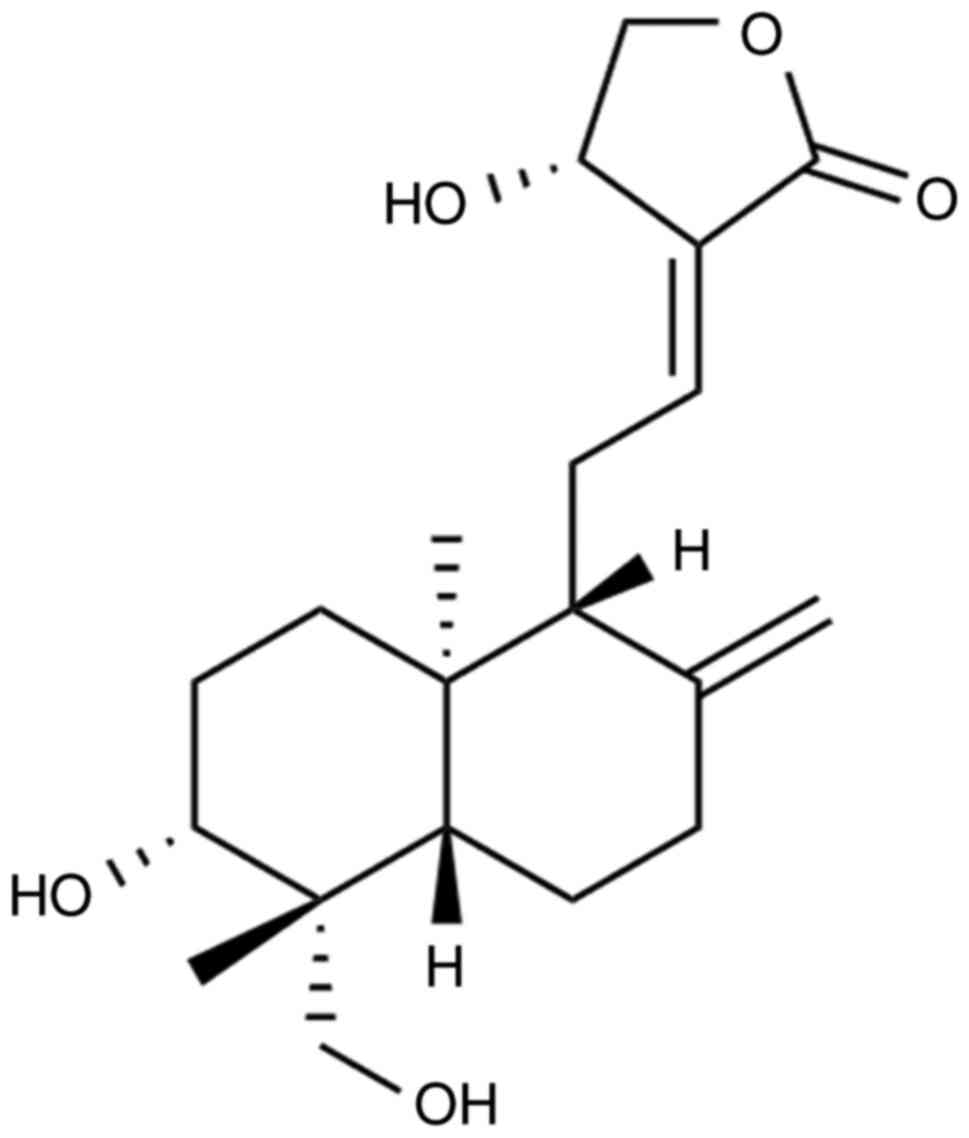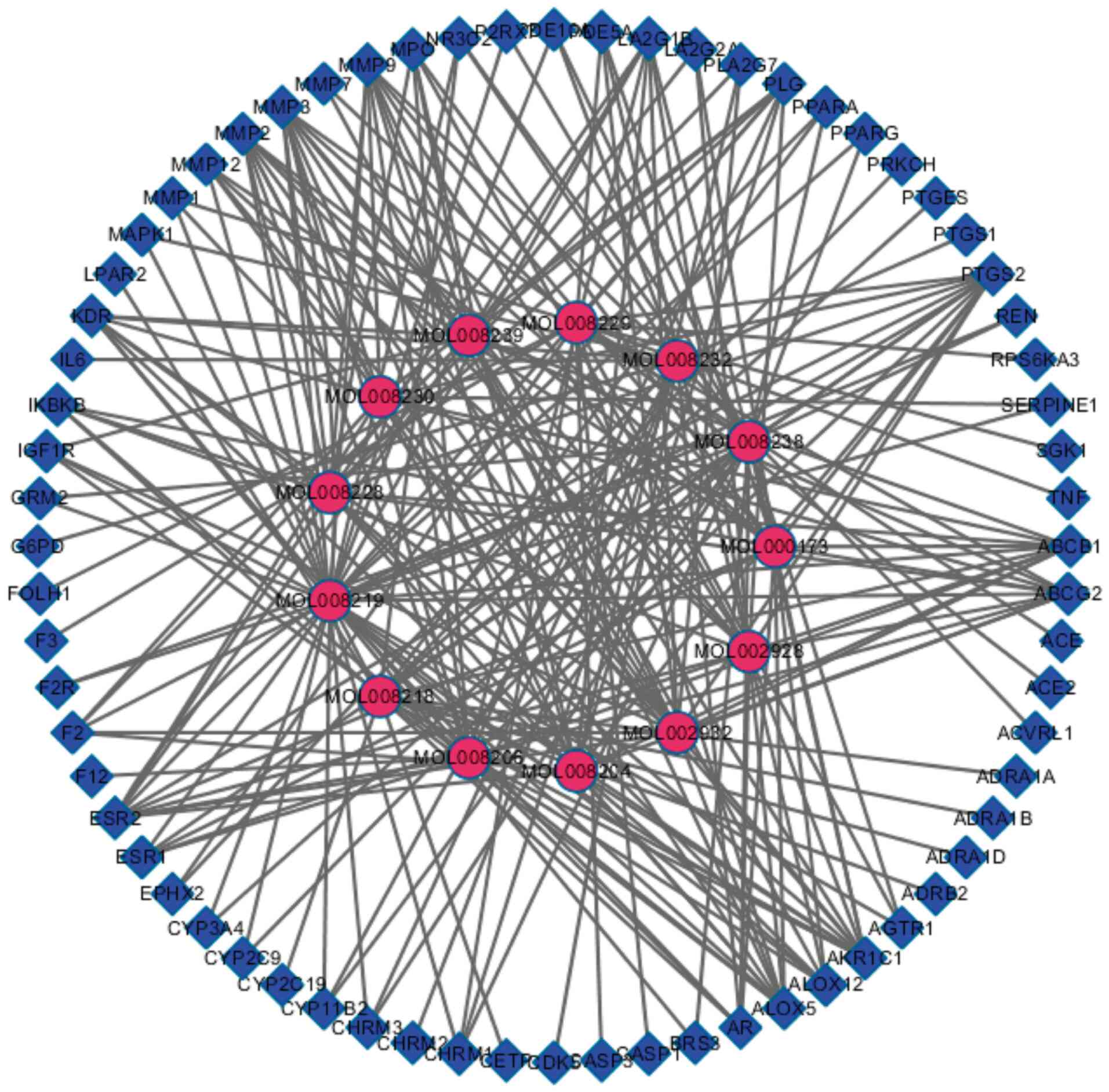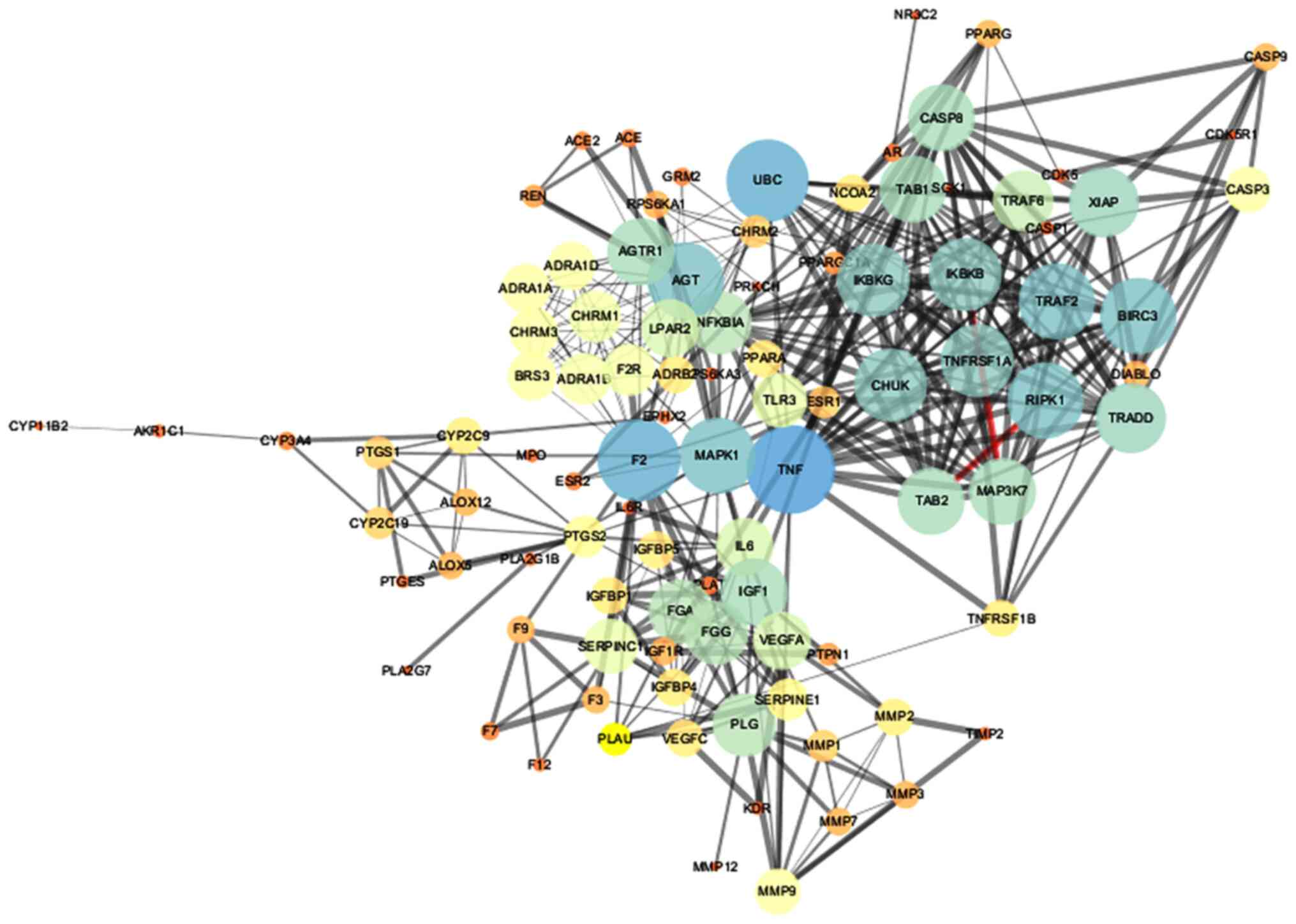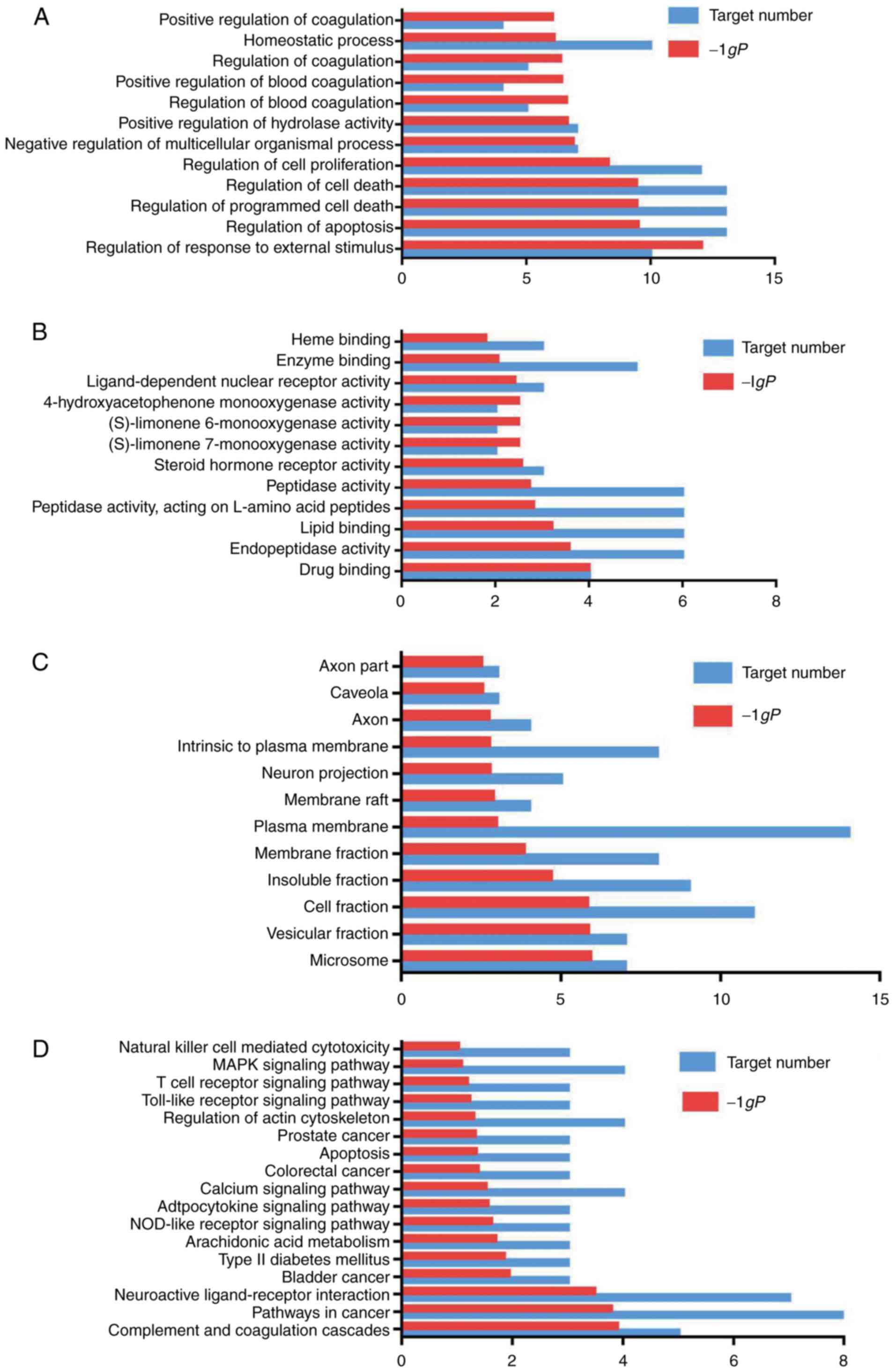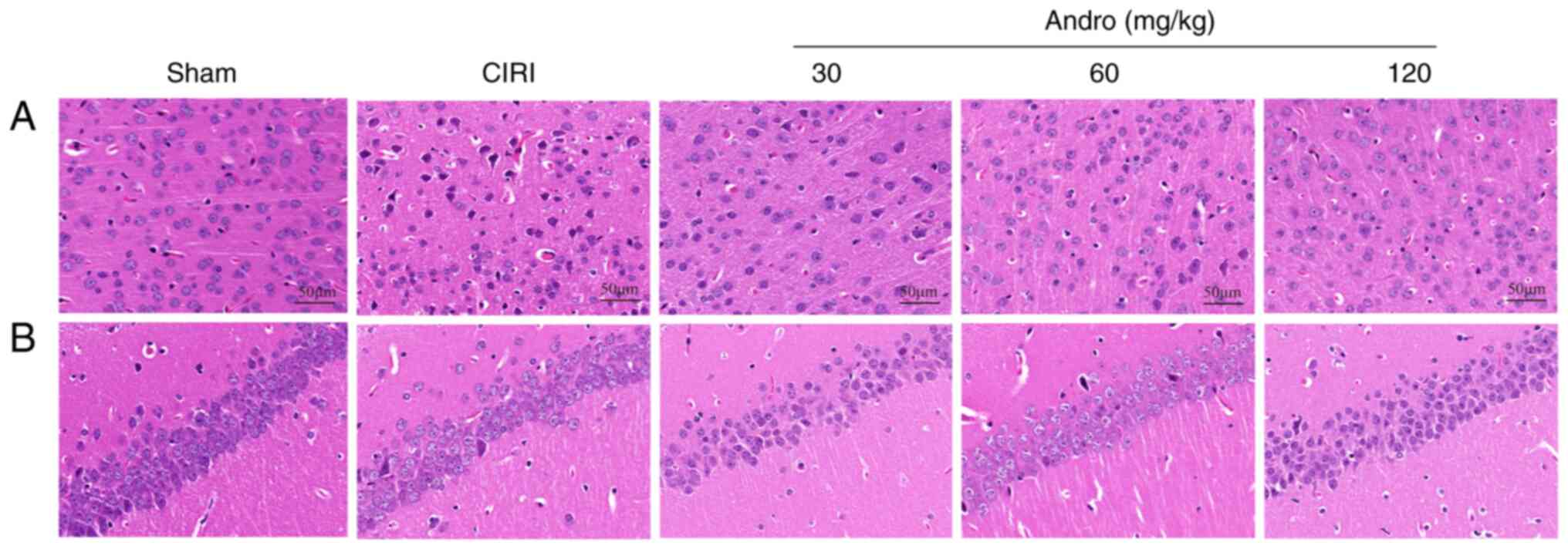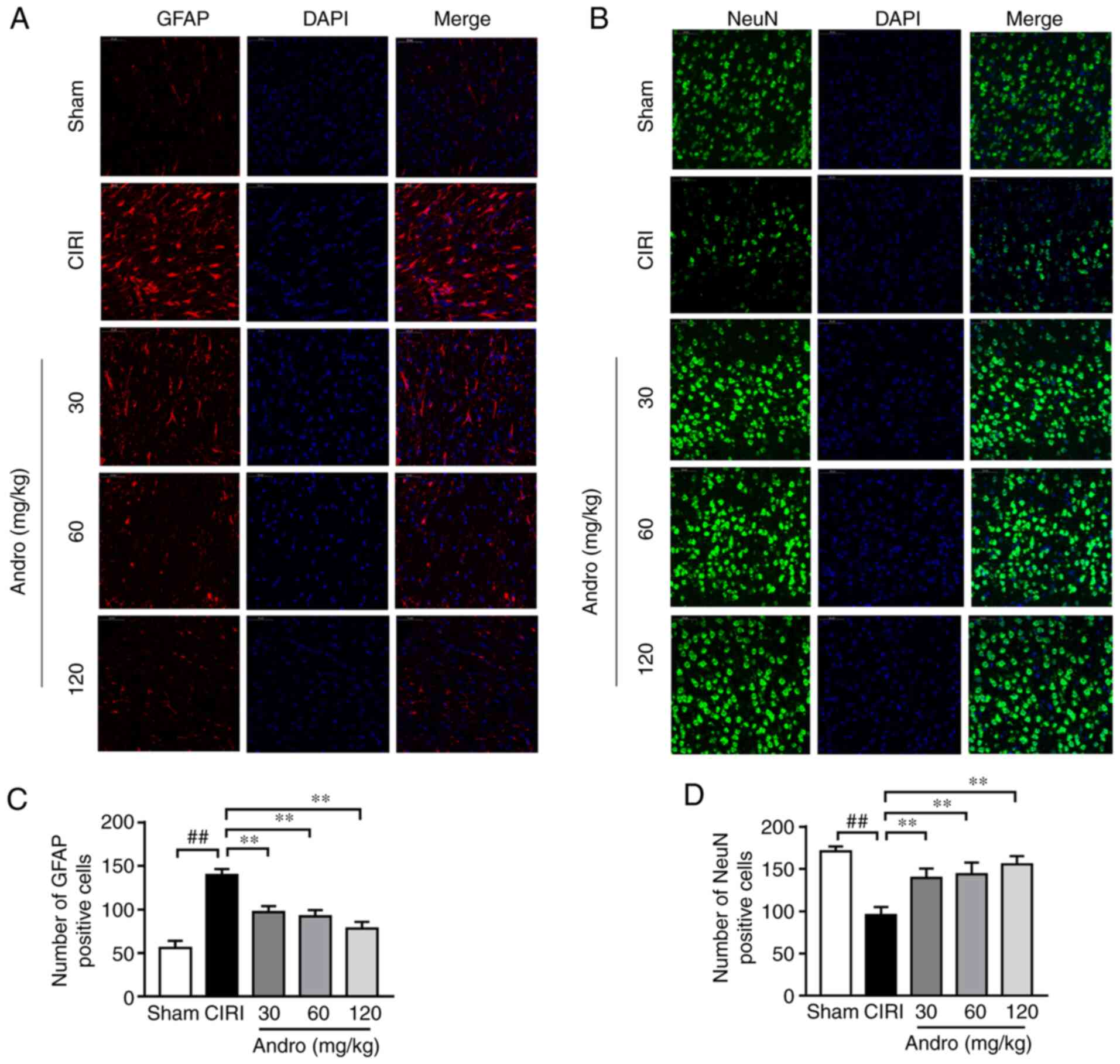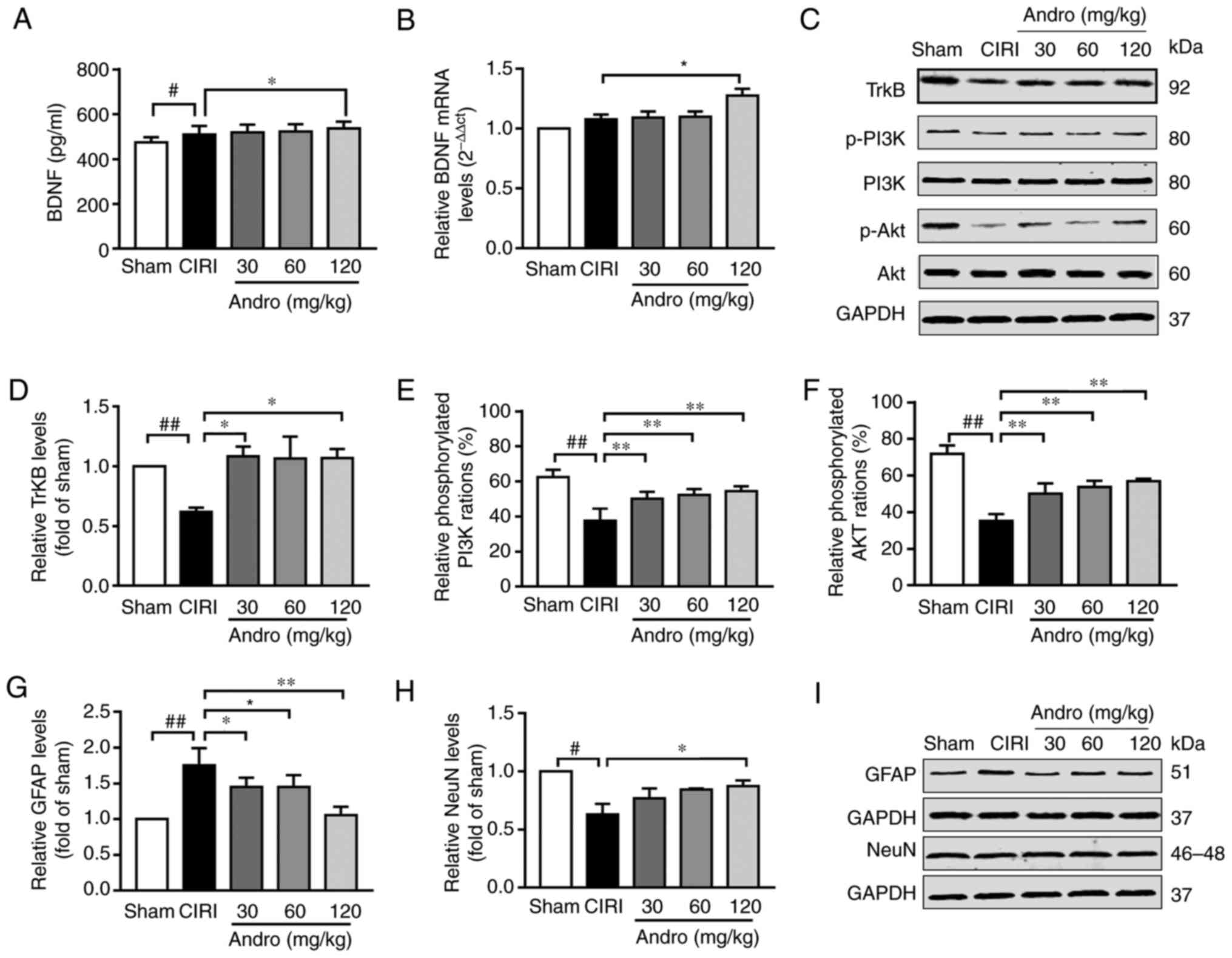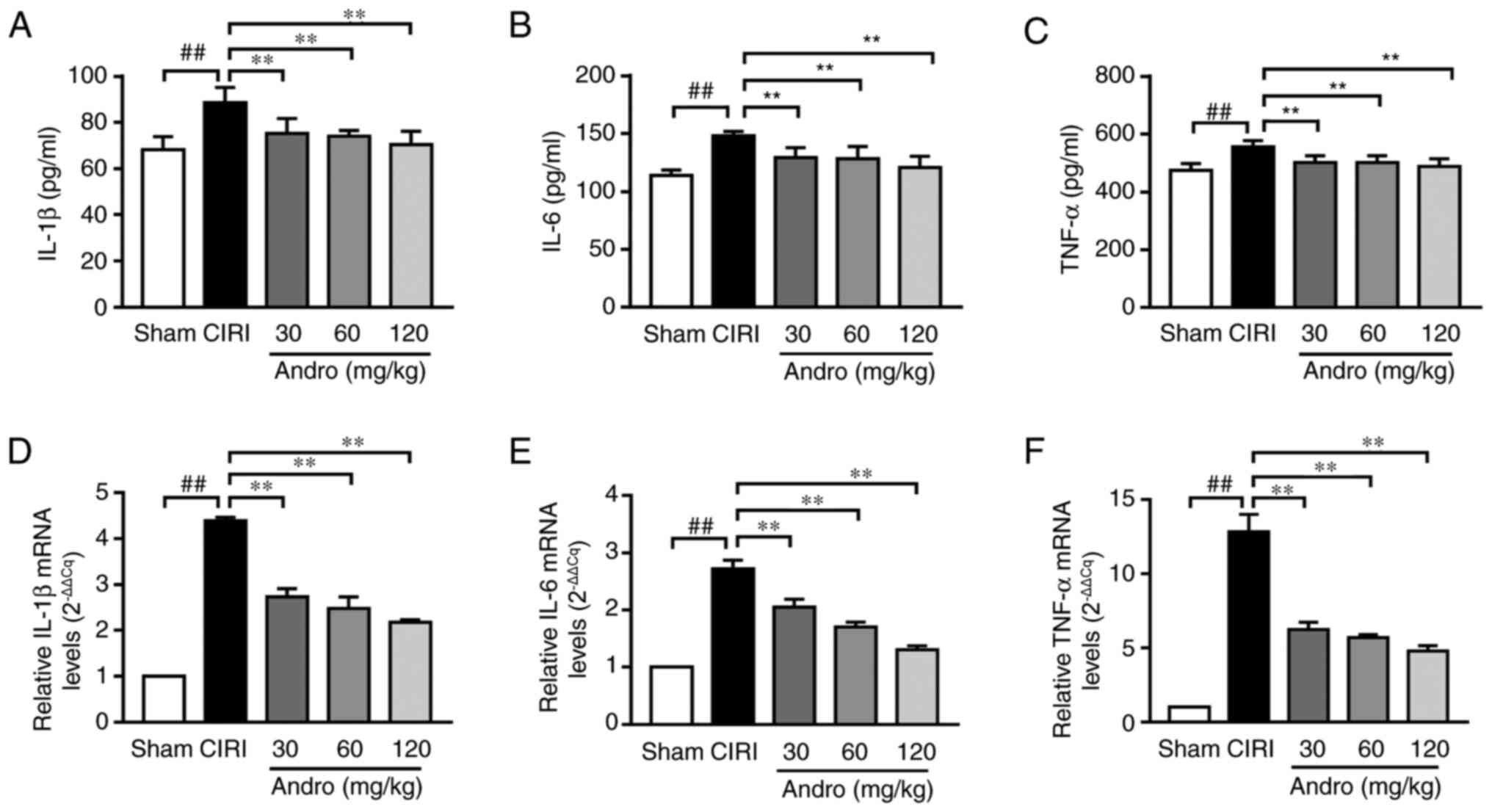|
1
|
Krishnamurthi RV, Feigin VL, Forouzanfar
MH, Mensah GA, Connor M, Bennett DA, Moran AE, Sacco RL, Anderson
LM, Truelsen T, et al: Global and regional burden of first-ever
ischaemic and haemorrhagic stroke during 1990-2010: Findings from
the global burden of disease study 2010. Lancet Glob Health.
1:e259–e281. 2013. View Article : Google Scholar
|
|
2
|
Miralbell J, López-Cancio E, López-Oloriz
J, Arenillas JF, Barrios M, Soriano-Raya JJ, Galán A, Cáceres C,
Alzamora M, Pera G, et al: Cognitive patterns in relation to
biomarkers of cerebrovascular disease and vascular risk factors.
Cerebrovasc Dis. 36:98–105. 2013. View Article : Google Scholar : PubMed/NCBI
|
|
3
|
Doyle KP, Simon RP and Stenzel-Poore MP:
Mechanisms of ischemic brain damage. Neuropharmacology. 55:310–318.
2008. View Article : Google Scholar : PubMed/NCBI
|
|
4
|
Song W, Zhao J, Yan XS, Fang X, Huo DS,
Wang H, Jia JX and Yang ZJ: Mechanisms associated with protective
effects of ginkgo biloba leaf extracton in rat cerebral ischemia
reperfusion injury. J Toxicol Environ Health A. 82:1045–1051. 2019.
View Article : Google Scholar : PubMed/NCBI
|
|
5
|
Becker KJ and Buckwalter M: Stroke,
inflammation and the immune response: Dawn of a new era.
Neurotherapeutics. 13:659–660. 2016. View Article : Google Scholar : PubMed/NCBI
|
|
6
|
Liu T, Yang K, Li G, Zhou K, Tan J, Chen
J, Li T, Yu Y and Ning W: Experimental evidence and network
pharmacology identify the molecular targets of Tong Sheng tablets
in cerebral ischemia reperfusion injury. Am J Transl Res.
11:3301–3316. 2019.PubMed/NCBI
|
|
7
|
Iadecola C and Anrather J: The immunology
of stroke: From mechanisms to translation. Nat Med. 17:796–808.
2011. View
Article : Google Scholar : PubMed/NCBI
|
|
8
|
Benjamin EJ, Blaha MJ, Chiuve SE, Cushman
M, Das SR, Deo R, de Ferranti SD, Floyd J, Fornage M, Gillespie C,
et al: Heart disease and stroke statistics-2017 update: A report
from the American heart association. Circulation. 135:e146–e603.
2017. View Article : Google Scholar
|
|
9
|
Powers WJ and Rabinstein AA: Response by
powers and rabinstein to letter regarding article, '2018 guidelines
for the early management of patients with acute ischemic stroke: A
guideline for healthcare professionals from the American heart
association/American stroke association'. Stroke. 50:e277–e278.
2019. View Article : Google Scholar
|
|
10
|
Muresanu DF, Strilciuc S and Stan A:
Current drug treatment of acute ischemic stroke: Challenges and
opportunities. CNS Drugs. 33:841–847. 2019. View Article : Google Scholar : PubMed/NCBI
|
|
11
|
Chan SJ, Wong WS, Wong PT and Bian JS:
Neuroprotective effects of andrographolide in a rat model of
permanent cerebral ischaemia. Br J Pharmacol. 161:668–679. 2010.
View Article : Google Scholar : PubMed/NCBI
|
|
12
|
Wang DP, Yin H, Lin Q, Fang SP, Shen JH,
Wu YF, Su SH and Hai J: Andrographolide enhances hippocampal BDNF
signaling and suppresses neuronal apoptosis, astroglial activation,
neuroinflammation, and spatial memory deficits in a rat model of
chronic cerebral hypoperfusion. Naunyn Schmiedebergs Arch
Pharmacol. 392:1277–1284. 2019. View Article : Google Scholar : PubMed/NCBI
|
|
13
|
Yuan H, Ma Q, Cui H, Liu G, Zhao X, Li W
and Piao G: How can synergism of traditional medicines benefit from
network pharmacology? Molecules. 22:11352017. View Article : Google Scholar
|
|
14
|
Ning K, Zhao X, Poetsch A, Chen WH and
Yang J: Computational molecular networks and network pharmacology.
Biomed Res Int. 2017:75739042017. View Article : Google Scholar
|
|
15
|
Zhang JJ, Gao TT, Wang Y, Wang JL, Guan W,
Wang YJ, Wang CN, Liu JF and Jiang B: Andrographolide exerts
significant antidepressant-like effects involving the hippocampal
BDNF system in mice. Int J Neuropsychopharmacol. 22:585–600. 2019.
View Article : Google Scholar
|
|
16
|
Livak KJ and Schmittgen TD: Analysis of
relative gene expression data using real-time quantitative PCR and
the 2(-Delta Delta C(T)) method. Methods. 25:402–408. 2001.
View Article : Google Scholar
|
|
17
|
Fan M, Song C, Wang T, Li L, Dong Y, Jin W
and Lu P: Protective effects of lithium chloride treatment on
repeated cerebral ischemia-reperfusion injury in mice. Neurol Sci.
36:315–321. 2015. View Article : Google Scholar
|
|
18
|
Huang DW, Sherman BT, Tan Q, Kir J, Liu D,
Bryant D, Guo Y, Stephens R, Baseler MW, Lane HC and Lempicki RA:
DAVID bioinformatics resources: Expanded annotation database and
novel algorithms to better extract biology from large gene lists.
Nucleic Acids Res. 35(Web Server Issue): W169–W175. 2007.
View Article : Google Scholar : PubMed/NCBI
|
|
19
|
Schooling CM, Huang JV, Zhao JV, Kwok MK,
Au Yeung SL and Lin SL: Disconnect between genes associated with
ischemic heart disease and targets of ischemic heart disease
treatments. EBioMedicine. 28:311–315. 2018. View Article : Google Scholar : PubMed/NCBI
|
|
20
|
van Hoof RHM, Schreuder FHBM, Nelemans P,
Truijman MTB, van Orshoven NP, Schreuder TH, Mess WH, Heeneman S,
van Oostenbrugge RJ, Wildberger JE and Kooi ME: Ischemic stroke
patients demonstrate increased carotid plaque microvasculature
compared to (Ocular) transient ischemic attack patients.
Cerebrovasc Dis. 44:297–303. 2017. View Article : Google Scholar
|
|
21
|
Zhang Q, An R, Tian X, Yang M, Li M, Lou
J, Xu L and Dong Z: β-Caryophyllene pretreatment alleviates focal
cerebral ischemia-reperfusion injury by activating PI3K/Akt
signaling pathway. Neurochem Res. 42:1459–1469. 2017. View Article : Google Scholar : PubMed/NCBI
|
|
22
|
Zhang X, Du Q, Yang Y, Wang J, Liu Y, Zhao
Z, Zhu Y and Liu C: Salidroside alleviates ischemic brain injury in
mice with ischemic stroke through regulating BDNK mediated PI3K/Akt
pathway. Biochem Pharmacol. 156:99–108. 2018. View Article : Google Scholar
|
|
23
|
Yen TL, Chen RJ, Jayakumar T, Lu WJ, Hsieh
CY, Hsu MJ, Yang CH, Chang CC, Lin YK, Lin KH and Sheu JR:
Andrographolide stimulates p38 mitogen-activated protein
kinase-nuclear factor erythroid-2-related factor 2-heme oxygenase 1
signaling in primary cerebral endothelial cells for definite
protection against ischemic stroke in rats. Transl Res. 170:57–72.
2016. View Article : Google Scholar
|
|
24
|
Chern CM, Liou KT, Wang YH, Liao JF, Yen
JC and Shen YC: Andrographolide inhibits PI3K/AKT-dependent NOX2
and iNOS expression protecting mice against
hypoxia/ischemia-induced oxidative brain injury. Planta Med.
77:1669–1679. 2011. View Article : Google Scholar : PubMed/NCBI
|
|
25
|
Wada T and Penninger JM: Mitogen-activated
protein kinases in apoptosis regulation. Oncogene. 23:2838–2849.
2004. View Article : Google Scholar
|
|
26
|
Yu ZH, Cai M, Xiang J, Zhang ZN, Zhang JS,
Song XL, Zhang W, Bao J, Li WW and Cai DF: PI3K/Akt pathway
contributes to neuroprotective effect of Tongxinluo against focal
cerebral ischemia and reperfusion injury in rats. J Ethnopharmacol.
181:8–19. 2016. View Article : Google Scholar : PubMed/NCBI
|
|
27
|
Bao Y, Qin L, Kim E, Bhosle S, Guo H,
Febbraio M, Haskew-Layton RE, Ratan R and Cho S: CD36 is involved
in astrocyte activation and astroglial scar formation. J Cereb
Blood Flow Metab. 32:1567–1577. 2012. View Article : Google Scholar : PubMed/NCBI
|
|
28
|
Freeman MR: Specification and
morphogenesis of astrocytes. Science. 330:774–778. 2010. View Article : Google Scholar : PubMed/NCBI
|
|
29
|
Lanfranconi S, Locatelli F, Corti S,
Candelise L, Comi GP, Baron PL, Strazzer S, Bresolin N and Bersano
A: Growth factors in ischemic stroke. J Cell Mol Med. 15:1645–1687.
2011. View Article : Google Scholar
|
|
30
|
Erpolat S, Celik HT and Bozkurt B:
Brain-derived neurotrophic factor is increased in serum levels of
patients with symptomatic dermographism. Postepy Dermatol Alergol.
34:346–349. 2017. View Article : Google Scholar : PubMed/NCBI
|
|
31
|
Ya BL, Liu Q, Li HF, Cheng HJ, Yu T, Chen
L, Wang Y, Yuan LL, Li WJ, Liu WY and Bai B: Uric acid protects
against focal cerebral ischemia/reperfusion-induced oxidative
stress via activating Nrf2 and regulating neurotrophic factor
expression. Oxid Med Cell Longev. 2018:60691502018. View Article : Google Scholar :
|
|
32
|
Wang J, Ma W and Liu Y: Long non-coding
RNA HULC promotes bladder cancer cells proliferation but inhibits
apoptosis via regulation of ZIC2 and PI3K/AKT signaling pathway.
Cancer Biomark. 20:425–434. 2017. View Article : Google Scholar : PubMed/NCBI
|
|
33
|
Franke TF, Kaplan DR and Cantley LC: PI3K:
Downstream AKTion blocks apoptosis. Cell. 88:435–437. 1997.
View Article : Google Scholar
|
|
34
|
Calleja V, Alcor D, Laguerre M, Park J,
Vojnovic B, Hemmings BA, Downward J, Parker PJ and Larijani B:
Intramolecular and intermolecular interactions of protein kinase B
define its activation in vivo. PLoS Biol. 5:e952007. View Article : Google Scholar
|















